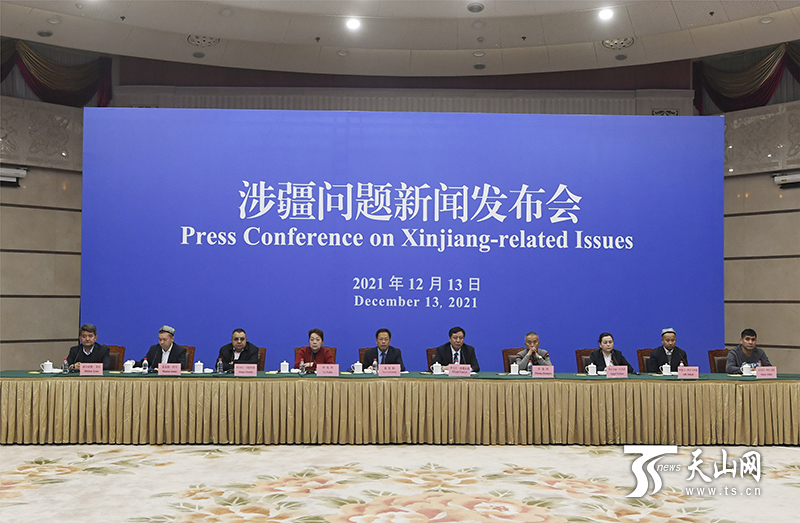02:41

Authorities in China's Xinjiang Uygur Autonomous Region said on Monday that counterterrorism measures that have been undertaken were within the bound of law, and have restored stability and boosted economic development.
At a news conference, which came amid revived claims of "genocide" in the region by some Western countries, local officials showed never before-seen footage of terrorist attacks in the region from the 1990s to recent years.
From 1990 to the end of 2016, extremists launched thousands of terrorist attacks and killed hundreds of policemen and innocent civilians in Xinjiang, officials said. But with tightened security and counterterrorism efforts, there have been no terror attacks in the region since 2017.
"Xinjiang's anti-terrorism effort does not target specific regions, ethnicities or religions. We balanced between leniency and strictness, and used both prevention, education, and rescue," said Xu Guixiang, spokesperson of People's Government of Xinjiang Uygur Autonomous Region.
"Through the fight against terrorism and de-radicalization in accordance with the law, we have effectively eliminated the breeding ground for terrorism and curbed terrorist activities in the past period."
The Uygur population has more than tripled from 3.6 million in the first national census of 1953 to over 11.6 million in the seventh national census of 2020. Officials said the growth rate of the Uygur minority population was higher than that of the Han, which disproves claims of Uygur genocide.

Officials in Xinjiang hold a press conference on December 13, 2021. /Tianshannet
Officials in Xinjiang hold a press conference on December 13, 2021. /Tianshannet
Survivors and families of victims of past terror attacks were also invited to share their stories. Many of them described being traumatized and said they hoped such tragedies never happen again in Xinjiang.
Li Falin, a retired employee of the public bus transport company and one of the survivors of a 1992 terror attack, told of her experience that day. Li was at the scene of a bus bombing in Urumqi on February 5, 1992, which has left four shrapnels in her leg.
"I tried to help but I couldn't. Broken glass, dead and injured people were all around me. The bus was blown into a metal shell. I was sent to the Railway Administration Hospital for treatment. The doctor diagnosed me with deafness in my left ear and suspected shrapnel in my left leg," Li recalled.
Ajiguli Tuerhong's father was kidnapped and murdered by extremists on September 18, 2015, after the herdsman from Baicheng County refused to join their "jihad."
"I would fight the terrorists to the end like my father did, if they ever dare to disrupt our peaceful life again," Tuerhong said. The extremists destroyed many happy families and ought to be brought to justice, she added.
Some from the religious community were also targeted.
On July 30, 2014, a Mawla in his 70s was murdered by extremists after conducting a morning prayer session at a mosque in Kashgar. The Mawla's son, Mahmet Juma, said that killing in the name of religion is an utter betrayal of Islam.
Xinjiang officials dismissed U.S. sanctions announced on December 10 against entities and individuals in Xinjiang, including officials, companies and experts, on the basis of so-called "human rights violations."
"Xinjiang has never been afraid of sanctions. All sanctions are futile. We will firmly and resolutely fight back against the power politics, bullying and rogue practices of anti-China forces in the U.S. and the West," said Elijan Anayat, spokesperson of Xinjiang government.
The officials also said that the counterterrorism measures were in accordance with international practices and adapted to the region's situation.
(CGTN's Cao Chufeng contributed to this report.)

